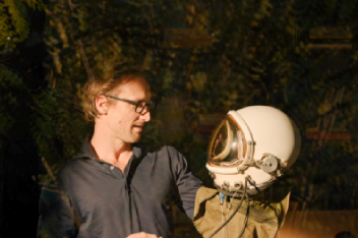

Original name: Odrešitev Za Začetnike
English name: Family Therapy
Year: 2024
Run time: 122 minutes
Language: Slovenian, English, French
Type (Colour/ Black & white): Colour
Country: Slovenia
Director: Sonja Prosenc
Producer: Rok Sečen, Sonja Prosenc
Cast: Marko Mandić, Katarina Stegnar, Aliocha Schneider, Mila Bezjak, Ana Djurić, Kristoffer Joner, Matija Vastl
Screenplay: Sonja Prosenc
Cinematographer: Mitja Ličen
Editor: Ivana Fumić
Sound Designer: Gisle Tveito
Music Composer: Primož Hladnik, Boris Benko
Costume Designer: Dubravka Skvrce, Gilda Venturini
Production Designer: Tajana Čanić Stanković
Production Company: Monoo
World Sales: Slovenian Film Centre

Sonja Prosenc, writer-director. Her award-winning films The Tree (2014) and History of Love (2018), which was awarded in Karlovy Vary IFF Crystal Globe Competition, were Slovenia's Official Oscar Entries and received international acclaim. Her distinctive film language has drawn attention from cinephiles, critics, and academics. Recognized as one of the four directors of the future at Slamdance in 2019 and a European female director to watch by Cineuropa, she was also selected for the Eurimages Gold Album in 2020, which presented 50 notable European female directors of the last 20 years. In 2019, Prosenc ventured into genre and directed the short comedy Paradise, which won the National Best Short Film Award, and the mystery thriller TV series Trigrad.
On a quiet roadside, a car smolders as a young family desperately needs help. Nearby, a sleek, luxury vehicle glides past, its occupants—an impeccably polished family—don’t even slow down. But who are these people who choose not to stop? And what are they hiding?
Family Therapy is a darkly comedic, satirical drama that follows a Slovenian ‘nouveau riche’ family living in a glass-walled mansion—a literal and metaphorical symbol of their detached superiority. This setting serves as a satirical backdrop for a humorous reimagining of the premise of Pasolini’s Teorema: Their world is upended when a young stranger enters the family’s household, shattering the illusion of perfection and exposing the chaotic, dysfunctional relationships festering beneath their polished exterior.
As the stranger’s presence unravels the family’s carefully constructed facade, we delve into the reasons behind their coldness: Is it a desperate attempt to preserve their fragile equilibrium? A deep-seated fear of their own vulnerabilities? Or does it speak to a larger societal malaise?